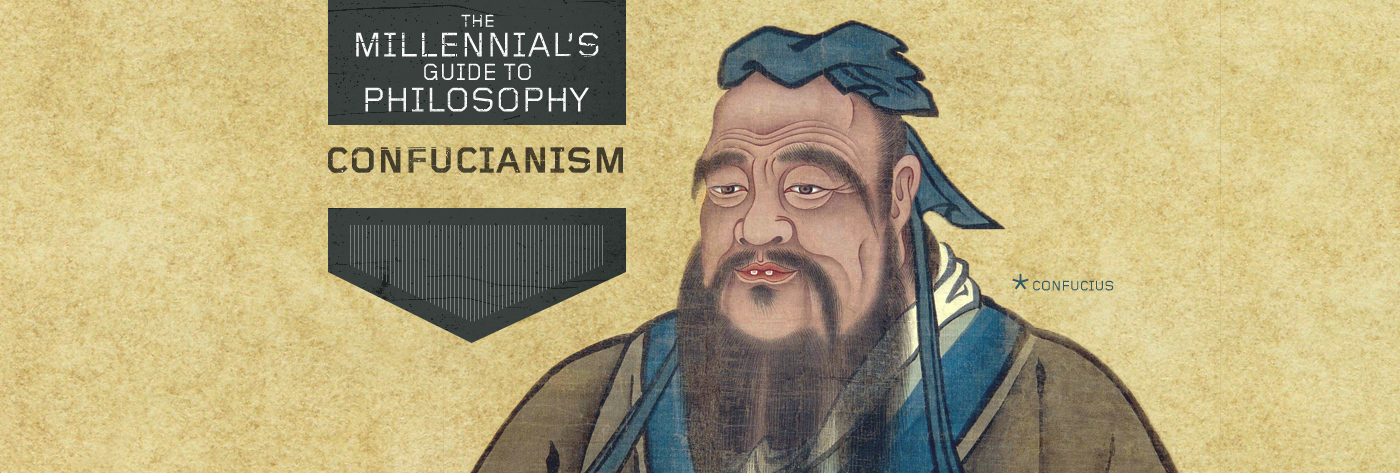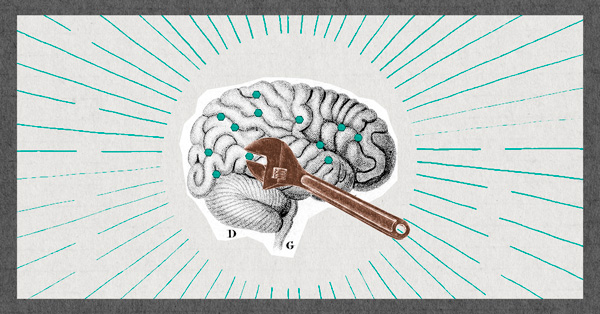The year is 479 BC, and an old sage has been buried in a modest grave on the bank of a gently flowing river. “The Master Kong” (or as transliterated in English, “Confucius”) had died at the age of 72, with fewer than 80 followers to mourn his passing. Yet within less than 300 years his teachings would come to dominate not only the whole of China, but spread across much of Asia as well. In spite of countless wars, dynasties, and developments, the ancient teacher’s sayings and maxims continue to live on, and provide us with as much wisdom today as they did 2,500 years ago.
Who Thought It Up
Raised in poverty by his widowed mother, Confucius’s study and dedication swiftly earned him a reputation throughout his province, one that eventually saw him gain appointment first as the mayor of a town and then the minister of justice for his entire state. While he found success as an astute and effective advisor, Confucius resigned his position after losing faith in his ruler, a man who had cast aside his duties for a life of pleasure. Disillusioned with politics, Confucius dedicated his life to teaching, traveling throughout the neighboring lands preaching a philosophy of simplicity, obligation, and virtue.
Although he died with only a handful of followers, Confucius’s legacy was preserved by his most devout disciples. These faithful few (including the philosopher Mencius, the most famous Confucian after Confucius himself) devoted themselves to codifying and spreading their master’s teachings. The first Confucians made great strides in dispersing his wisdom by transcribing his words into a compilation of proverbs, and it’s this act that has today made the name “Confucius” nearly synonymous with wisdom.
What It’s All About
Harmony
-Confucius, “Analects”
Much of western thought and philosophy tends to focus on the individual, presenting a “you-alone-versus-the-world” mentality. Eastern thought generally rejects that view, presenting life as not a struggle against the universe, but a struggle to make peace with the universe. This is certainly true of Confucianism, emphasizing the need to recognize reality and live accordingly. The Analects, the compiled sayings and proverbs of Confucius, offer just such a story about a young disciple who asked the sage “What would be your first action if you were to command a kingdom?” Confucius replied that, before all else, he would seek to restore the “proper names” of all things. The confused disciple asked how such a thing could be important, to which the sage replied “If names be not correct, language is not in accordance with the truth of things.”
In other words, if we don’t recognize the world for how it actually is then how can we live in it? Until we manage to recognize nobility as nobility, justice as justice, honor as honor, and duty as duty, there can be no peace in our own lives, in the nation, or even the world. In simplest terms, good can only be done after we first know what good is.
Duty
-Confucius, “Analects”
Concepts of obligation and obedience may often throw western readers who are more used to ideals of freedom and independence. What’s vital to understand, however, is that duty is not an end but rather a means to an end. Respect and deference to one’s elders, loyalty to one’s leaders – these things are done because it is our place to do so. All of this stems again from harmony and a concept called “Tao” (literally, “The Way”). According to not only Confucius but much of Eastern thought, “The Way” described the order or balance meant to exist in the universe by all things being done in their proper place and time. As Confucius argues, filial piety (obedience and reverence to one’s parents) must be done not because parents are infallible, but because it is your place in the universe to do so. Leaving your appointed place serves only to further unbalance the world.
So if you’re a student, then be a good student, regardless of the actions of your teacher. Lowering yourself to the level of a bad instructor through rebellion or insolence serves only to remove both of you from the intended order of things, and makes the restoration of that order all the more difficult.
Think of this like turning the other cheek – it’s better to be wronged then to do wrong yourself.
The Gentleman
-Confucius, “Analects”
Confucius’s concept of the “gentleman” is often alternatively translated as “the superior man”. While this may sound similar to the “ubermensch” (“over man” or “superman”) described by Nietzsche, the two could not be more different. Rather than freeing oneself from tradition and the masses (as Nietzsche advocates), the ideal described by Confucius is rather one who seeks humility, learning, self-discipline, and strict observance of the natural order. Having himself seen corruption within the nobility during his time as a government official, Confucius concluded that nobility – true nobility – was something earned and not inherited. The gentleman is not one who owns property, but one who understands how to behave with or without property. Dignity belongs not to the dignitary, but to the man who understands, in any circumstance, how to adhere to the natural order.
Driven by the sincerity that comes from a true love of learning, the gentleman will dedicate himself fully to the principles of wisdom, justice, and virtue. And as the gentleman draws closer to his place in the natural order of things, so will he be able to assist others along the way.
It is here that the heart of the philosophy lies.
Humanity
-Confucius, “Analects”
The Analects tell a story of a messenger who rushed to Confucius and informed him that there had been a fire at his estate. The philosopher rushed back home and saw that his stables had been burned to the ground. As the story goes, Confucius never asked about his horses, instead inquiring only to the safety of his household and his servants.
A single horse, back in the day, would have been of monumental value; a whole stable of them all the more so. But the story tells us that Confucius didn’t consider that for a moment, inquiring only about the safety and well-being of his household and servants.Human beings, the moral holds, are what are truly important, and concern for humanity sits at the core of Confucian thought.
Indeed, Confucius held that without a concern for others all other virtues are worthless. Returning again to the core principle of interconnectedness, Confucian thought argues that we cannot be truly good unless those around us are good as well. Respect from our children requires respect to our own parents. Good rule means good citizenship, and so on. Imagine, for example, a watch: If any one part is broken, then all the other parts are rendered useless no matter how pristine they might be.
What It Means For Us
As we head out into adulthood it’s easy to get through the tough times by telling ourselves it’ll all be better soon. Once we get that dream job. Once we buy our own house. Once we have the money to do whatever we want. There’s not one of us who hasn’t at some point thought, “Once I get ______, it’ll all be alright. I’ll finally be happy.”
Perhaps even Confucius once had the same idea.
Confucius, after all, wasn’t born into wealth, and only managed to achieve his position after years of tireless study and service. And yet for everything he wound up getting – his riches, his property, his power, his prestige – none of it gave him peace and he traded it all away in an instant for a life of simple contemplation.
So rather than trying to conquer the world, why not just find our place in it? Why not simply do what we know is right and let the rest of the world follow suit. Indeed, in this world of chaos and conflict, what more can be done other than to live humbly, honorably, and virtuously?
And in the end, isn’t that the greatest achievement? In spite of everything that life throws at us – the ups, the downs, the good, the bad, the ugly – we can still manage to be the bigger (or as Confucius would put it, “superior”) man.
Required Reading
The Analects of Confucius – Compiled by his followers, The Analects are the collected sayings and parables of the great thinker. In spite of their age, the short proverbs are not only easily understandable, but as inspiring and convicting today as when they were first spoken.
The Book of Proverbs – While estimated to predate Confucius by at least 150 years, and separated by over 4,400 miles, the Biblical Book of Proverbs contains much of the same principles as The Analects, compiling the sayings and maxims of the wisest kings and thinkers of the Middle East in a search for true wisdom and right behavior.
The Great Learning – Focusing on learning and the concept of “Tao”, The Great Learning provides us not only the principal thoughts of Confucius, but the additional developments of his earliest followers as well. So short it could almost be considered a mantra, the text nevertheless provides us with a deceptively simple challenge to the very way in which we interpret the world and all within it.
The Millennial’s Guide to Philosophy
- The Millennial's Guide to Philosophy: Stoicism
- The Millennial’s Guide to Philosophy: Epicureanism
- The Millennial’s Guide to Philosophy: Nietzsche
- The Millennial’s Guide to Philosophy: Postmodernism
- The Millennial’s Guide to Philosophy: Confucianism
- The Millennial’s Guide to Philosophy: Taoism
- The Millennial’s Guide to Philosophy: Sartre
- The Millennial’s Guide to Philosophy: Kierkegaard
- The Millennial’s Guide to Philosophy: Camus












![It’s Time to Begin Again: 3 Uncomfortable Frameworks That Will Make Your New Year More Meaningful [Audio Essay + Article]](https://www.primermagazine.com/wp-content/uploads/2025/01/begin_again_feature.jpg)



